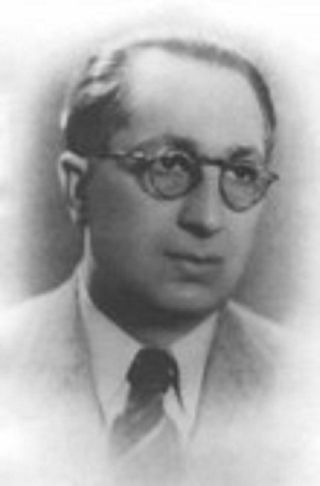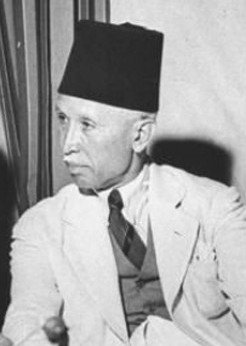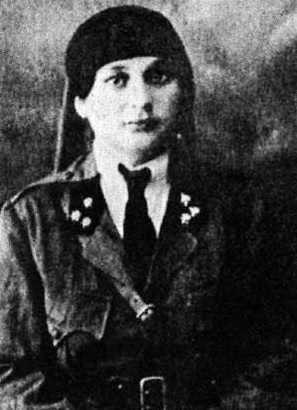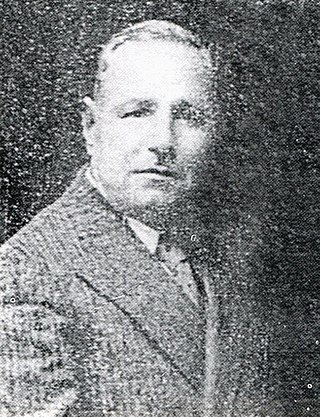Related Research Articles

Sami Moubayed is a Syrian historian and writer whose works cover the modern history of Damascus from the late Ottoman period until the creation of the United Arab Republic in 1958.

Maamun al-Kuzbari was a Syrian literary personality, politician and acting head of state from a prominent Damascus family.

Sabah Qabbani was appointed ambassador of Syria to the United States by President Hafez Al-Asad in 1974. The post had been vacant since 1967 when diplomatic relations between Syria and the United States were severed following the 1967 Arab-Israeli war. Prior to his posting in Washington, D.C. he was Syria’s envoy to Indonesia and Syria's consul in New York.

Marjeh Square, also known as "Martyrs' Square", is a square in central Damascus, Syria, just outside the walls of the old city. The Syrian Interior Ministry has its headquarters in the square.
The National Party was a Syrian political party founded in 1947, eventually dissolving in 1963, after the Syrian Ba'ath Party established one-party rule in Syria in a coup d'état. It grew out of the National Bloc, which opposed the Ottomans in Syria, and later demanded independence from the French mandate. The party saw the greatest support among the Damascene old guard and industrialists. It supported closer ties with the Arab countries and territories to Syria's south, mainly Saudi Arabia, Egypt, Lebanon, and Mandatory Palestine, although it began supporting Hashemite-ruled Iraq and Jordan starting in 1949 amongst growing public support. While the dominant party in 1940s and early 1950s, it was replaced by its rival, the People's Party, thereafter. Similar to the People's Party, the National Party was also supported by landowners and landlords.

Muhsin al-Barazi was a Syrian lawyer, academic and politician. He served a short term as a 24th Prime Minister of Syria in 1949 and was executed after a coup d'état overthrew his government.

Afif al-Bizri was a Syrian career military officer who served as the chief of staff of the Syrian Army between 1957–1959. He was known for his communist sympathies, and for spearheading the union movement between Syria and Egypt in 1958.

Abdullah Atfeh was a Syrian career military officer who served as the first chief of staff of the Syrian Army after the country's independence.
Anwar Bannud (1908–1979) was a Syrian military officer who served as the chief-of-staff of the Syrian Army from 1950 to 1951.

Nasuhi al-Bukhari or Nasuh al-Boukhari was a Syrian soldier and politician who briefly served as Prime Minister of Syria in 1939.

Wahib al-Ghanim (1919-2003) was a Syrian physician who co-founded the Ba'ath Party. According to Patrick Seale, he, along with Zaki al-Arsuzi, "wanted a stronger dose of socialism than the Damascus leaders" of the Ba'ath Party.

Nazik Al Abid known as the "Joan of Arc of the Arabs" was a Syrian women's rights activist, nationalist, and critic of Ottoman and French colonialism in Syria. She was the first woman to earn rank in the Syrian Army for her role in forming the Red Star Society, a precursor to the International Red Cross and Red Crescent Movement, during the battle of Maysalun. She was a revolutionary for national independence and women's right to work and vote in Syria.
Ahmad al-Sharabati was a Syrian politician and the defense minister of Syria between 1946 and 1948, serving in the post as Syria gained its independence from France and during the early days of the 1948 Arab-Israeli War.
Thuraya al-Hafez (1911-2000), was a Syrian politician who campaigned against the niqab and for women's rights.
Salma Mardam Bey is a Syrian writer and historian.
Ahmad Qanbar was a Syrian politician and journalist served as interior minister for five times.
Fayez al-Khoury, was a Syrian politician who served as foreign minister for two terms in 1930s and 40s. He also served twice as Minister of Finance.

Nabih al-Azma was a Syrian politician and the defense minister of Syria in 1946.
References
- ↑ Sami M. Moubayed: Steel & Silk: Men and Women who Shaped Syria 1900-2000 430-432
- ↑ Sami M. Moubayed: Steel & Silk: Men and Women who Shaped Syria 1900-2000 430-432
- ↑ Sami Moubayed: The Makers of Modern Syria: The Rise and Fall of Syrian Democracy 1918-1958 124
- ↑ Ghada Hashem Talhami: Historical Dictionary of Women in the Middle East and North Africa 187
- ↑ Sami M. Moubayed: Steel & Silk: Men and Women who Shaped Syria 1900-2000 430-432
- ↑ Sami M. Moubayed: Steel & Silk: Men and Women who Shaped Syria 1900-2000 430-432
- ↑ Sami M. Moubayed: Steel & Silk: Men and Women who Shaped Syria 1900-2000 430-432
- ↑ Sami M. Moubayed: Steel & Silk: Men and Women who Shaped Syria 1900-2000 430-432
- ↑ Sami M. Moubayed: Steel & Silk: Men and Women who Shaped Syria 1900-2000 430-432
- ↑ Sami M. Moubayed: Steel & Silk: Men and Women who Shaped Syria 1900-2000 430-432
- ↑ Sami Moubayed: Under the Black Flag: An Exclusive Insight into the Inner Workings of ISIS 33
- Fruma Zachs, Sharon Halevi: Gendering Culture in Greater Syria: Intellectuals and Ideology in the Late
- James A. Reilly: Fragile Nation, Shattered Land: The Modern History of Syria